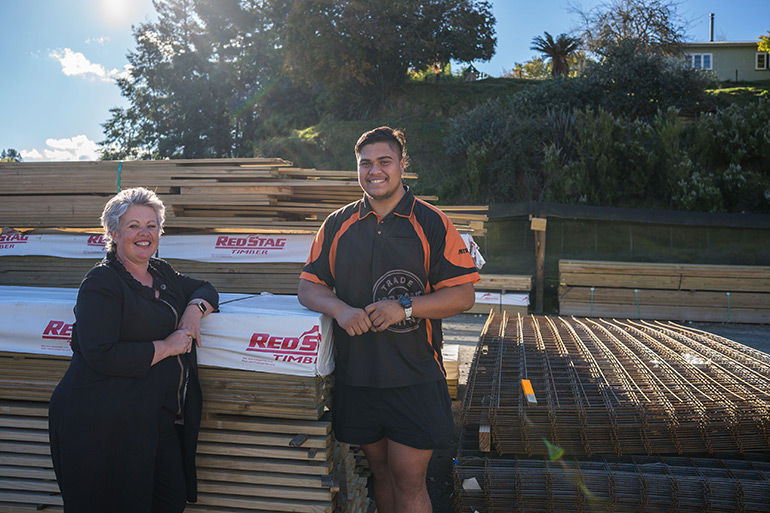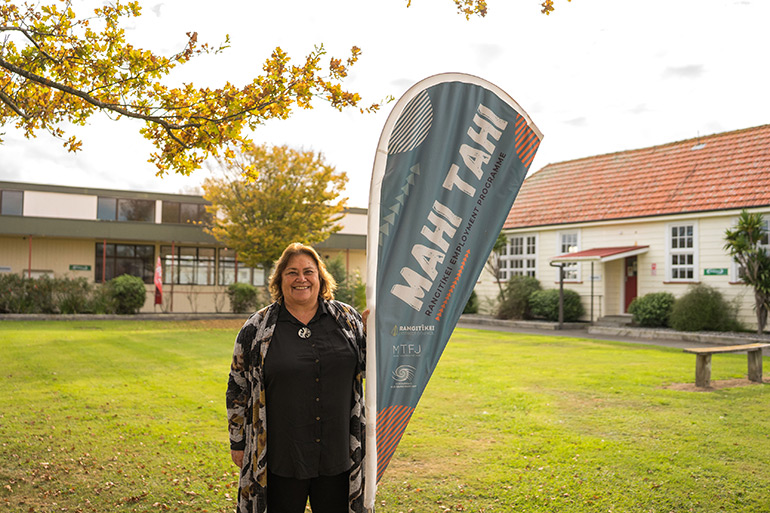Our action points – Hei mahinga ake mā mātou
Our purpose is to support resiliency in our regional workforce that creates better outcomes for our kaimahi, employers, whānau, and mokopuna. Turning these outcomes into a reality requires more than words on a page – it requires meaningful action.
On this page

With this in mind, the Manawatū-Whanganui Regional Skills Leadership Group will:
- Draw on industry connections and local networks to identify regional kaiāwhina workforce needs to support the design and implementation of the new ‘Entry to Healthcare’ programme being developed by UCOL – Universal College of Learning.
- Collaborate with tertiary institutions across the region to:
- Develop level appropriate literacy provision for the kaiāwhina workforce
- Identify areas of learning that recognise prior kaiāwhina experience, minimising time out of mahi for kaimahi as they gain relevant health qualifications
- Deliver education training in a way that meets the needs of Māori health providers.
- Work with Toitū te Waiora (Community, Health, Education and Social Services Workforce Development Council), Te Mahau, District Health Boards, and Primary Health Organisations to support the Creating Workforce Knowledge and Data priority in their Kaiāwhina Plan at a regional level.
Kaiāwhina action plan(external link) — Kaiāwhina Plan
- Support the formation of a partnership between UCOL, Toitū te Waiora, and Nga Kaitataki Hauora Māori Iwi Health Providers Collective providers within the Te Ranga Tupua rohe. This will ensure that kaiāwhina related credentialing and programme development is reflective of the skills needs of the region and embeds Te Ao Māori as part of standard healthcare provision. Further, we will facilitate the partnerships UCOL wishes to form with additional iwi kaiāwhina or other providers to ensure regional nuances are identified and considered.
- Lead the development of a regional directory of training opportunities by:
- Working with Economic Development Agencies (or equivalent), and Skills and Talent Action Groups (STAGs) to identify local training opportunities in each district,
- Consolidating district lists into a regional directory of training opportunities,
- Working with stakeholders to make the directory publicly available so that it is accessible to all interested stakeholders.
- Invite the Chairs from STAGs across the region, as well as regional representatives of the labour market, to attend the Regional Skills Leadership Group meetings at least twice a year. This will enhance collaboration between the districts and influence information-sharing relating to regional labour market opportunities and challenges. Regional representatives of the labour market will include careers advisors, union representatives, iwi leaders, industry representatives and government agencies.
- Lead the development of a report that provides a journey analysis of school leaver cohorts in the region, through consultation with relevant organisations, and agencies who have access to the Integrated Data Infrastructure. This report will identify post-school journeys and intervention points where additional support might be needed.
- Support the development of partnerships between Mayor’s Taskforce for Jobs, regional Chambers of Commerce and organisations who have developed ‘Youth Ready’ employer programmes, such as Talent Central and Tararua REAP. This partnership will ensure that the programmes are disseminated to a wide range of local businesses across the region, giving the opportunity to become accredited ‘Youth Ready’ employers.
- Work with Te Mahau, Iwi Education & Employment Services, Connected, Get-Go, Talent Central and 100% SWEET to increase opportunities for regional secondary school students to get a range of careers advice and provisions to pathway into employment. The provision of equitable advice across the region ensures that rangatahi are equipped for success.


